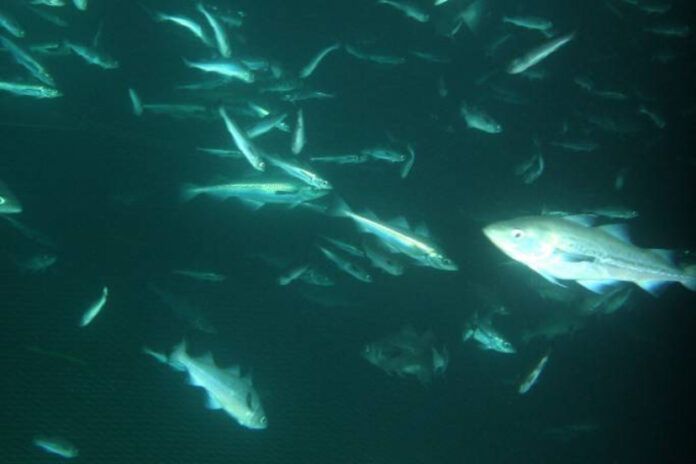Fish are surprisingly resistant to heat waves in the ocean, shows a new study including work by UBC scientists.
The study, titled ‘Marine heatwaves are not a dominant driver of change in demersal fishes,’ was published this month in Nature. It was a collaboration by researchers in Canada, Europe and the US.
Scientists looked at 248 sea-bottom heat waves from 1993 to 2019, including the infamous “Blob” which affected the BC Coast from 2014-2016, and how they affected populations of demersal fish, otherwise known as groundfish, which include some of the largest fisheries in the world such as Alaskan pollock and Atlantic cod.
They found the effects of marine heatwaves were often minimal and were not linked to natural variations. For example, while “the Blob” led to a 22% loss of groundfish biomass in the Gulf of Alaska, a 2012 marine heatwave in the Northwest Atlantic led to a 70% biomass gain.
The authors also noted that these were not large changes compared to natural variability.
“Although steep declines in biomass occasionally occurred after marine heatwaves, these were the exception, not the rule,” reads the paper’s abstract. “Against the highly variable backdrop of ocean ecosystems, marine heatwaves have not driven biomass change or community turnover in fish communities that support many of the world’s largest and most productive fisheries.”
In a press release from UBC, co-author Dr. William Cheung from the UBC Institute for Oceans and Fisheries says the findings are good news and a good incentive to try to keep climate change impacts to a minimum.
“Our findings contrast with my previous studies,” he says. “It could be that marine fish will have a better chance to survive through marine heatwaves if we stay the course and keep global warming to 1.5 degrees Celsius or less.”
He says the results suggest impacts of marine heatwaves on fish are sporadic.
“The increasing frequency of marine heatwaves with intensifying global warming will likely heighten the occurrences of declines in fish. A safe bet to avoid loss of marine life is to reduce the number of marine heatwaves by mitigating climate change,” he says.
The researchers also looked at whether marine heatwaves were causing changes in the composition of fish communities, such as a loss of species associated with cold water and an increase in species associated with warm water, known as “tropicalization.” They found no evidence of a connection between marine heat waves and species loss or gain.




